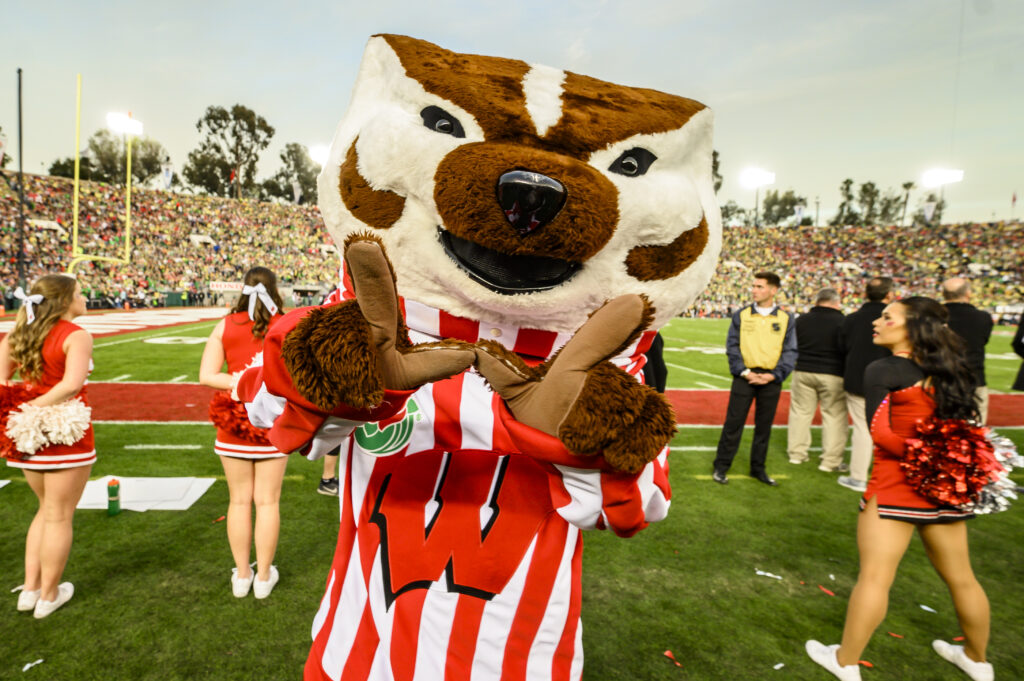The Night Mares are building a softball community on and off the field
Written by: Morgan Feller
Savanna Rainey’s first season with the Madison Night Mares was a dream come true.
Late in a game during the Night Mares’ inaugural season, a young Black girl from the Poynette Smash approached Rainey.
She was worried she wouldn’t get her ball signed — a ritual the local softball team performs after every game — and asked Rainey if she could get it signed before leaving early.
Rainey, the marketing and operations manager, promised to take the softball into the dugout and have the ball signed by every player. This was a special case, though.
The young girl wanted Rainey to sign the ball instead of the players.
“I was like, ‘Wait what?’” Rainey questioned.
Rainey stood there, puzzled. She asked herself why the girl would want an autograph from someone who wasn’t on the team.
“She was like, ‘Well, I mean, you’re amazing, you’re awesome, you’re on the field just like they are,’” Rainey says the girl said.
“‘You deserve to sign it. You’re the reason why this is happening,’” Rainey recalls the girl’s father added.
Teary-eyed, Rainey signed the girl’s softball. She was left speechless after the exchange with the young player.
The introduction of the Madison Night Mares, one of four teams featured in the new Northwoods Softball League, couldn’t have come at a better time as the inclusion and popularity of women’s sports is starting to blow up, especially in Madison.
After duking it out with the Mankato Habaneros late in the season, the Night Mares finished in second place with a 25-17 record. Although they weren’t crowned champions in their first season, the capital’s team will be remembered for knocking it out of the park by fostering a community in Madison.
Rainey played a key role in the team’s success in a community with strong ties to successful women’s sports teams already, and the aspiring Night Mares aim to continue to create new audiences to foster a unique sports culture in Wisconsin.
As a Black woman, Rainey is passionate about increasing representation in softball, which is a sport lacking diversity.
“What I really care about is making sure that I’m able to see other young little girls that look like me that might have never had the opportunity to see something like this,” she says.
Rainey articulated the importance of influencing young softball players — something she missed out on during her playing days.
It got so bad that she eventually hated the sport she once loved.
She now makes it her goal to give players and young girls what she didn’t have: a supportive coach figure to look up to and a revolutionary softball team.
“If I would have had this as a kid, you would just think opportunities are endless,” Rainey says when describing the impact the Night Mares have on young girls who play softball. “And not that opportunities weren’t endless when I was a kid, but we just didn’t have anything like this at the time.”
The softball star on the Poynette Smash wasn’t the only athlete who was inspired by the Night Mares’ inaugural season.
Bryn Hommowun, a seventh-grade softball player for the Sun Prairie Savage, was lucky enough to practice with the Night Mares.
“It was really cool to see older girls that also played softball and it was really cool to see a competitive team come,” Bryn says. “It was really cool to see another older girl’s team that plays, that is now pretty well known out of Madison, come to help us learn.”
Sharing the field with the Night Mares wasn’t the grandest field the 13-year-old stepped on though.
Bryn’s team was lucky enough to throw out the first pitch during the first home game of the inaugural season.
Erin Hommowun, Bryn’s mom, was elated to see her daughter throw out this first pitch — something she never got to do as a young Little League Baseball player.
“To watch my daughter have opportunities, not only to play competitive softball with really supportive women so early, but then to be able to watch older women who have grown up in the game, is amazing,” Erin says. “I feel like this whole community has just done better for girls in sports. And so it really meant a lot to our whole family.”
UW Softball star Hilary Blomberg, who had the league’s second-best batting average, assisted at the Little League team’s practices.
“I was helping one girl hit, and I was like, oh my God, she’s good. She just needs to use her legs,” Blomberg says, as she recalls a practice with the Sun Prairie Savage. “I was helping her on the side, and sure enough they were hitting live off their own pitchers, and then the next time she went up, she hit her first-ever home run.”
Carly Oliver, a National Fastpitch Coaches Association Gold Glove second baseman from the University of the Cumberlands in Kentucky, reflects on her connections with fans and teammates and the lessons she learned from the Night Mares’ games.
After seeing a dog retrieve a bat during her first team meeting at a Mallards’ game, she was worried the Night Mares were like the Savannah Bananas, a popular baseball team from Savannah, Georgia, with circus-like antics and funny dances during games.
She had no idea what she had gotten herself into.
Once the season was in full swing, Oliver says the fun games taught her a valuable lesson.
“Even if you’re having a bad game, you still have to be that role model, you still have to put a smile on your face and interact with the fans,” Oliver says. “That I think is gonna help some of these players when they go back to school, be like OK, at the end of the day, this is just a game.”
One of her biggest takeaways on the playing field, though, was her impact on not only little girls but little boys as well.
“The biggest thing for me was when a little boy would come through a line and they would just look at you like you hung the moon,” Oliver says. “Growing up as a young female athlete, we had those baseball players that we were like, oh, he’s really good, but you don’t see the other way around a lot.”
Samantha Rubin, the Mallards and Night Mares general manager, is proud the softball team gained such loyal fans after one season.
Rubin and Rainey had lofty expectations for attendance records, but after cross-referencing how they stacked against other teams, they dusted the competition.
According to the league’s website, the team averaged 1,250 people every game, 78% higher than the next team in the Northwoods Softball League.
Not only did the Night Mares dominate attendance among their softball peers, the team also outdrew 14 Northwoods League Baseball teams in average attendance, more than half of the Northwoods League Baseball teams.
What makes this attendance feat even crazier is the front office only had six months to prepare after the initial thoughts of hosting a softball team in Madison surfaced.
“Not many people, especially at my age, have the opportunity to not only run a summer collegiate baseball team, that’s basically a minor league team, but to also launch a team,” Rubin says. “There’s nothing out there like Northwoods League softball, there’s nothing out there like the Night Mares and there are other summer collegiate softball leagues, but they don’t do the fun.”
Rubin is paving the foundation for other leagues as the first female general manager of the Mallards and only one of four female general managers in the Northwoods Baseball League.
According to Rubin, exceptional softball players all over the Madison area travel to other cities to play in more competitive leagues. It’s her goal to change the landscape of Madison softball by creating a youth softball league in 2025 to increase the sport’s popularity.
This is just the beginning of Night Mares softball and the growth of women’s sports.
“Being able to work around such awesome people, that just love what they do and love sports and love being around their job is awesome,” Rainey says. “Especially seeing this on the field and transpire to what it has been, and I can’t wait to see what it will be in the future.”

